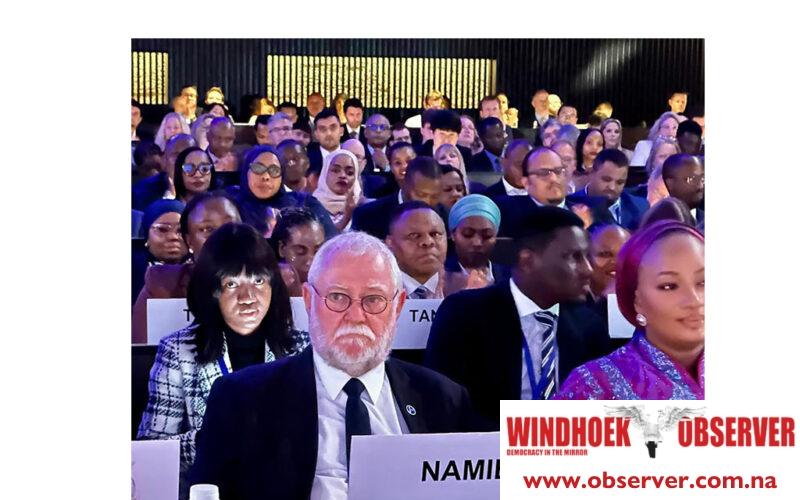Niël Terblanché
Cooking on fires fueled by wood or animal dung has severe health, environmental, and gender equality implications, leading to approximately 600,000 premature deaths annually, mostly among women and children around the world.
The Minister of Agriculture, Water, and Land Reform, Calle Schlettwein, stressed an urgent need for robust partnerships with industrialised countries, multinational companies, and the global private sector to finance clean cooking initiatives across Africa.
Schlettwien spoke at the Summit on Clean Cooking in Africa, which is currently underway in Paris.
He pointed to the financial constraints that have impeded Namibia and many other African countries from achieving their clean cooking targets.
The summit, co-hosted by the International Energy Agency (IEA), aims to make 2024 a pivotal year for clean cooking access in Africa.
Global leaders from government, the private sector, and civil society are gathered to discuss how to catalyse multi-stakeholder partnerships to address this critical issue.
The IEA estimates that nearly four in five Africans still rely on open fires and traditional stoves, which use polluting fuels like wood, charcoal, and animal dung.
The IEA found that this practice has severe health, environmental, and gender equality implications, leading to approximately 600,000 premature deaths annually, mostly among women and children.
Schlettwein, in his address, stressed the necessity of reviewing financial systems down to the household level to make clean cooking accessible by 2030.
He said that African economies, already overburdened by debt, require significant financial support to tackle the clean cooking challenge effectively.
The IEA has identified clean cooking as a crucial component of the broader energy access agenda, noting that achieving universal clean cooking access in Africa by 2030 would require about N$73.6 billion in capital investments annually.
The summit has brought together high-profile figures, including the African Development Bank’s President, Dr Akinwumi Adesina, President Samia Suluhu Hassan of Tanzania, and Norwegian Prime Minister Jonas Gahr Støre, who are co-chairing the event alongside IEA Executive Director Fatih Birol.
The African Development Bank views the collaborative effort as highlighting the significance of global commitment and investment in transforming Africa’s cooking practices, as one of the most consequential investments in the continent’s future.
Schlettwein, in his address, also said that clean cooking is not just an energy issue; it intersects with global development, environmental sustainability, health, and gender equality.
The IEA has been a vocal advocate for clean cooking access, tracking energy access for over two decades.
The agency argues that because indoor air pollution disproportionately affects women and children, the lack of progress in clean cooking undermines efforts to combat climate change and gender inequality.
Schlettwein informed participants at the summit that the Namibian government’s push for clean cooking solutions is part of a broader strategy to enhance sustainable development and improve public health outcomes.
He added that by fostering international partnerships and securing financial commitments, Namibia hopes to make significant strides in providing its population with access to clean and sustainable cooking methods.




